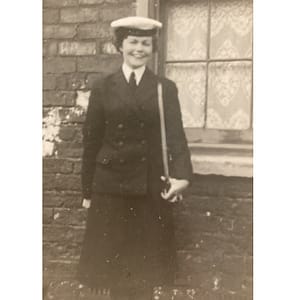Listen to the story of joan stead by her daughter T at the lack of care in the nhs in hull. {Alledgedly}
Is it safe to go to a nhs facility in 2025 ?
The family wants answers .
The seven Nolan principles are a set of standards for public life, designed to help public office holders act with integrity and serve the public interest. They include Selflessness, Integrity, Objectivity, Accountability, Openness, Honesty, and Leadership. These principles aim to increase public confidence by ensuring that decisions are made on merit and not for personal gain.
Hull University Teaching Hospitals NHS Trust (HUTH), which runs Hull Royal Infirmary and Castle Hill Hospital, has faced scrutiny and acknowledged failings related to medical errors and quality of care for elderly patients, including specific serious incidents and ongoing concerns highlighted by the Care Quality Commission (CQC).
-
- CQC Reports and “Requires Improvement” Rating: The CQC has rated the trust’s overall services as “Requires Improvement”. Specific findings related to patient care for older people include:
- Inadequate hydration and nutrition: Patients in the emergency department were not always checked regularly to see if they had enough to eat and drink; one diabetic patient waited 16 hours for food or a drink.
- Pain management issues: A patient with high pain levels did not receive timely or adequate pain relief.
- Staffing shortages: Staff shortages in medical and surgical services impacted the continuity and safety of care.
- Patient flow issues: Significant numbers of patients, including elderly ones awaiting onward care packages, experienced extended stays, contributing to pressures on bed capacity.
- CQC Reports and “Requires Improvement” Rating: The CQC has rated the trust’s overall services as “Requires Improvement”. Specific findings related to patient care for older people include:
- Admitted Medication Errors and Negligence: The Trust has previously agreed to damages settlements and admitted fault in cases involving elderly patients. One case involved an 84-year-old patient who suffered a stroke due to medication errors (taken off blood-thinning medication inappropriately) and subsequently broke his hip in a fall which could have been prevented. In another case, the Trust admitted a breach of care after mistakenly giving oral medication to a “nil by mouth” 78-year-old patient who later died.
- Lack of Care Plans and Risk Assessments: A 2011 report by the Health Service Ombudsman highlighted multiple service failures for an elderly patient (“Mr D”), including a lack of a care plan for his condition, no risk assessments for pressure ulcers or falls, and failure to properly assess his nutritional status.
The Trust has acknowledged some of these issues and stated its commitment to learning from errors and improving patient safety, though a recent police investigation and CQC reports indicate ongoing challenges.
THE NHS TRUST IN HULL
Serious and most basic mistakes made’ as nil by mouth
A Hospital Trust has admitted its errors caused a patient to be left with broken bones in her foot for a year – causing damage beyond repair.
Hospital apologises for leaving needle in patient
https://www.bbc.co.uk/news/articles/c93973e2qp2o
Police investigate heart deaths at NHS hospital
https://www.bbc.co.uk/news/articles/cev404npy4po
Hospital admits fault for death of patient left without vital medication for more than two days
Patient developed ‘full thickness skin loss’ pressure sores due to hospital’s failures and poor nutritional support
Patient who developed sepsis and kidney abscess after Hull health centre missed infection
Hospital Trust pays £650,000 damages to man losing mobility following delays in diagnosing and treating serious spinal condition
Hull University Teaching Hospitals NHS Trust (HUTH), like all NHS trusts, faces challenges with medication safety, particularly concerning vulnerable groups like the elderly. While specific public reports detailing the exact prevalence of errors within HUTH’s elderly care wards are not readily available in the search results, the Trust has publicly acknowledged medication safety as a priority and implemented quality improvement initiatives.
Key Context and Initiatives
-
- National Problem: Medication errors are a significant national issue within the NHS, with an estimated 237 million errors occurring in England annually. The elderly, especially those in care homes with polypharmacy (taking multiple medicines), are at particularly high risk.
- Trust Initiatives: HUTH has promoted “Druggles,” a quality improvement project involving pharmacist-led multi-disciplinary team huddles to discuss medication queries and incidents, aimed at reducing errors across clinical areas, including paediatric units. This indicates a proactive approach to learning from incidents and improving safety.
- CQC Findings: The Care Quality Commission (CQC) rated the Trust as “requires improvement” overall in a March 2023 report, with the safety rating moving from “requires improvement” to “inadequate” in some departments (emergency, medical, and surgical services). The report highlighted that leaders understood the issues but specific details regarding the scale of medication errors in elderly care wards were not provided in the snippets.
- Common Errors in Elderly Care (General UK Data): Research studies across the UK indicate common medication errors in elderly care settings include:
- Omitted or wrong doses: Nearly half of administration errors are omissions.
- Wrong time administration: The most common administration error observed in one study.
- Prescribing/Monitoring errors: Issues such as incomplete information on prescriptions, lack of monitoring for high-risk drugs (e.g., diuretics, anticoagulants), and poor communication between different healthcare providers (GPs, pharmacists, care home staff).
The Trust operates within a national framework that mandates reporting of serious incidents (death or severe harm) to the CQC and encourages an open, “fair blame” policy to promote learning and prevent recurrence.


